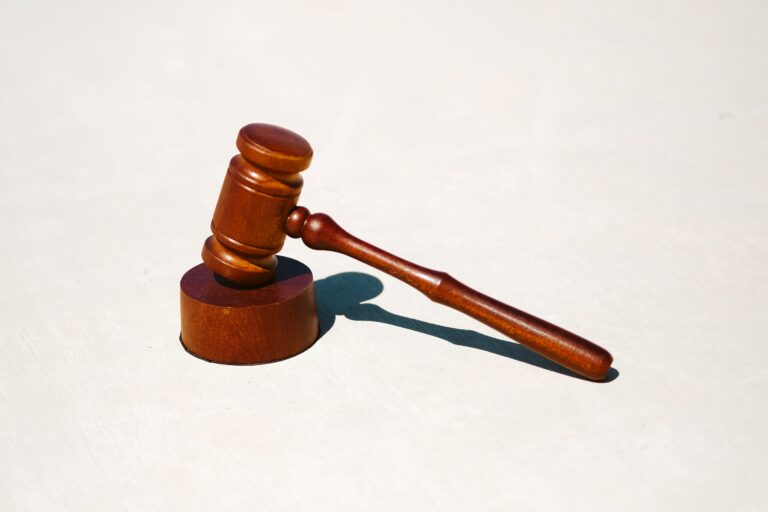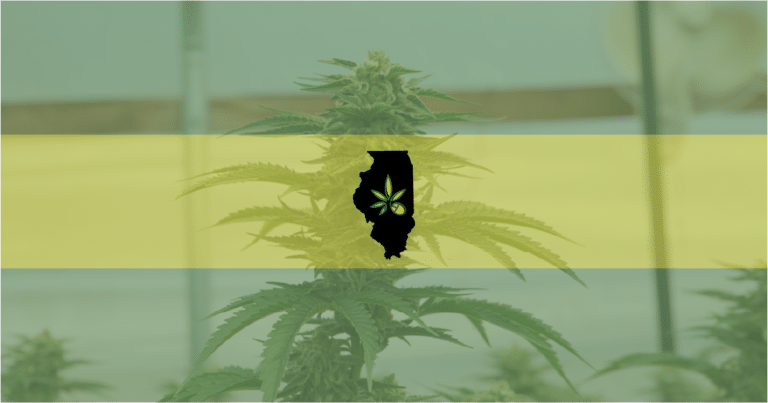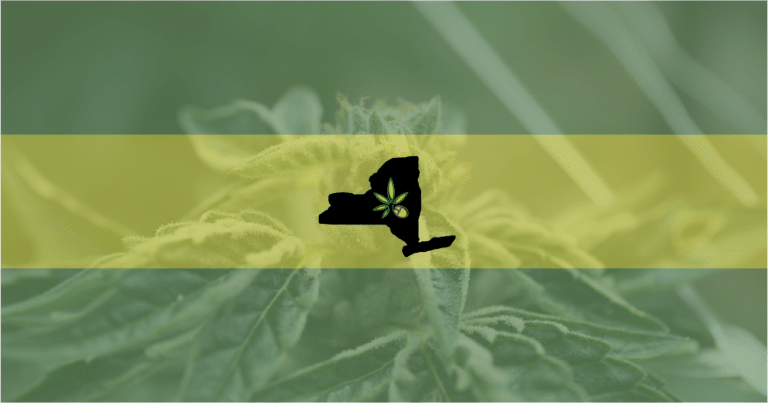Nebraska and Arizona, two states which have taken, to date, drastically different approaches to marijuana. The climate between the two states is quite different, and their views on marijuana are just as contrasting. The state of cannabis in Nebraska is the same as it is federally: cannabis is still considered a schedule I drug. Arizona on the other hand, just voted to approve adult-use cannabis during the November 3rd election.
Nebraska’s Stance on Marijuana: Is Weed Legal in Nebraska?
The State of Nebraska currently follows the stance of the federal government in classifying marijuana as a Schedule I controlled substance, though the state has decriminalized marijuana to some degree. Typically, decriminalization means that a first-time possession offender can get off with no prison time or criminal record, as long as the courts have determined that the amount found is small and for personal consumption. To put it in another perspective, it would be the equivalent to what many of us have received for offenses such as minor traffic violations.
Marijuana Possession:
Let’s dive into the specifics of what Nebraska’s laws say about marijuana and what those caught in possession of marijuana may face. Possession of one (1) ounce or less is considered an infraction, which is currently punishable by a maximum fine of $300. As part of this infraction, an offender may be required to complete a drug education course as well. If the same individual is faced with a second conviction for possession of one (1) ounce or less of marijuana, the charge is upgraded to a Class IV misdemeanor, and carries with it a maximum fine of $500. If you are unlucky enough to receive a third or more convictions for possession of one (1) ounce or less of marijuana, you will be rewarded with a Class IIIA misdemeanor, which carries with it a maximum imprisonment sentence of seven (7) days, and a fine of $500.
If you are caught and charged with possession of more than one (1) ounce, and up to one (1) pound of marijuana, it is considered a Class III misdemeanor, which is punishable with a maximum fine of $500 and carries with it a hefty maximum sentence of three (3) months imprisonment. A charge of possession of more than one (1) pound of marijuana will land you in the turbulent waters of felonies, specifically a Class IV felony, which in Nebraska is punishable by a maximum fine of $10,000 and a serious imprisonment of up to five (5) years.
[author note – if you want to add a specific citation it is – Neb. Rev. Stat. §28-416 and Neb. Rev. Stat. §28-105.]
Oftentimes, when an individual is caught and charged with possession of marijuana they are also charged with some form of possession of paraphernalia. Paraphernalia commonly referred to as an apparatus, equipment, or furnishing used for a particular activity and purpose. For marijuana users, think smoking pieces, grinders, stash boxes, etc. Possession of paraphernalia is considered an infraction which carries with it a maximum fine of $100 for a first offense. Each additional conviction of a possession of paraphernalia carries with it a fine ranging between $200 – $500. If you are convicted of selling paraphernalia it is considered a Class II misdemeanor with maximum penalties of six (6) months imprisonment and a $1,000 fine.
Marijuana Sale & Manufacture:
If you are in the nefarious business of illegal sale or manufacture of marijuana, you may want to stay out of the state of Nebraska. The sale of any amount of marijuana is considered a Class III felony, which comes with it a mandatory minimum sentence of one (1) year in prison, with a potential maximum sentence reaching twenty (20) years. That’s two decades, and to put a cherry on top, you’ll also receive a fine of up to $25,000. If you are unwise enough to sell marijuana, in any amount, to a minor (someone under the age of 18) within 1,000 feet of a school or between 100-1,000 ft. of other designated areas (such as a governmental building), you will find yourself facing a Class II felony. Your reward for your ill-advised endeavour is a mandatory minimum sentence of one (1) year in prison, with a maximum sentence of up to fifty (50) years possible.
A second, and any subsequent violations, is a Class 1D felony which carries with it a mandatory minimum sentence of three (3) years in prison with a potential maximum of fifty (50). It should be noted that the state of Nebraska has a history of reaching for longer prison terms for individuals who are convicted of sale to minors.
[author note – if you want to add a specific citation it is – Neb. Rev. Stat. §28-416 and Neb. Rev. Stat. §28-105.]
Nebraska’s Marijuana Future:
Advocates for medical marijuana in Nebraska were dealt a serious blow earlier this year after the Nebraska Supreme Court ruled that a medical marijuana ballot initiative supported by Nebraskans for Medical Marijuana would not appear on the November 2020 ballot. This ruling came as a response to a lawsuit that was filed by opponents to the medical marijuana initiative, arguing that the measure submitted had violated the state’s “single subject” rule.
This battle in the courts was the result of the medical marijuana campaign’s success in submitting over 190,000 voter signatures to the Secretary of State’s office back in early July. In August, the campaign was informed it had successfully collected the requisite number of signatures to certify a constitutional amendment for the ballot. The proposal would have granted legal protections for patients who obtained recommendations from their healthcare providers for treatment of a debilitating condition with medical marijuana.
Fear not Nebraskans, as supporters of the constitutional amendment have regrouped and re energized their efforts. The campaign has already submitted new petition language for a 2022 ballot initiative that has resolved the single subject issue. Whether through legislative action or another ballot initiative, it seems promising that medical marijuana will be legalized in the next two years.
Arizona Marijuana Laws: Did Arizona Legalize Weed?
Medical Marijuana:
A decade ago, Arizona voters passed Proposition 203 – legalizing the medical use of marijuana under the Arizona Medical Marijuana Act (AMMA). The AMMA allowed any qualifying Arizona resident, who is at least 18 years old with a debilitating medical condition, to use medical marijuana. To get a medical marijuana card in Arizona, you will need to go to your physician and have them fill out a Physician Certification Form. Once that has been completed, you will need to submit said form, along with a $150.00 application fee to Arizona’s Department of Health Services (ADHS).
If you’re from out of state and visiting Arizona, and you have a valid medical marijuana registration card from your home state, you may possess and use marijuana. However, you won’t be able to purchase medical marijuana from an Arizona dispensary with your out-of-state license due to statutory limitations in Arizona’s law. Also, keep in mind that in Arizona, you’ll only be able to possess and use up to 2.5 ounces of medical marijuana while visiting.
Recreational Marijuana:
Arizona voters passed Proposition 207 on November 3rd this year with roughly 60% in favor. This proposition, which will be known as the Smart and Safe Arizona Act, legalizes marijuana possession and consumption for adults 21 and older in Arizona. Arizona lawmakers will have until April 5, 2021 to establish regulations for the state’s new adult-use cannabis industry. Use of cannabis in public will still be classified as a petty offense.
The new law allows adults to buy and possess up to one (1) ounce of marijuana with no more than five (5) grams being concentrates. Notably, individuals are now allowed to participate in home cultivation, with limits set at six (6) cannabis plants per individual’s primary residence. If two or more persons 21 or older reside at the residence, twelve (12) plants may be cultivated.
Distinct recreational marijuana dispensaries will open in the state. The ADHS will issue licenses after an application acceptance period from January 16 – March 9th, 2021. Many medical marijuana dispensaries will get a recreational license which will allow them to sell both medical and recreational marijuana from their current dispensary location(s). A 16% excise tax will be imposed on recreational cannabis sold at state-licensed dispensaries, which will be used to fund various state agencies and programs.
With a new law comes new possession charges. For example, possession for personal use of more than one ounce, but less than two and a half ounces (2.5) marijuana, is now considered a petty offense punishable by a maximum fine of $300. Possession by those under the age of 21 is a civil penalty for first time offenders, a petty offense for second time offenders, and class 1 misdemeanor for third and subsequent offenses. If you are charged with possession for personal use of less than two (2) pounds of marijuana, you will face a Class 6 felony, which carries with it a minimum sentence of six (6) months (and a maximum sentence of 1.5 years), and a minimum fine of $1000 or a fine to exhaust the proceeds of the drug offense.
What happens if you were previously caught and charged with marijuana possession before this new law comes into effect? Fear not, for if you were charged recently enough to have your cases still pending through the court system, you can file a court motion to have your case dismissed. This is the case so long as you met the statutory threshold of less than 2.5 ounces for flower, 12.5 grams for concentrates, or if your charge involves simple possession of paraphernalia. What if you are being prosecuted for a marijuana DUI? Prior to the passage of Prop 207, you would have been up a creek without a paddle so to speak, as anyone without a medical card could be prosecuted for a marijuana DUI if active marijuana metabolites are found in your system. With the passage of Prop 207, the landscape has slightly changed. While it still prohibits driving while impared on marijuana, the new law allows the state’s legislature, with a three-quarter majority vote, to enact laws that put a threshold on the active metabolites allowed in the bloodstream, much like what you see with a blood-alcohol concentration limit. Keep in mind though, this law isn’t retroactive in this regard, and will only apply to new DUI cases post-enactment.
[Author’s note — if you want to cite – Ariz. REV. STAT. §13-3401; §13-3405; §13-702; §13-801]
Additional Resources:
At The Weed Blog, we strive to produce the latest online news resources regarding marijuana. We also review various strains of cannabis or other edible counterparts. We are committed to helping you find valuable information about marijuana on our website. With marijuana laws constantly changing, learn from us what you can do to promote activism in your area. Otherwise, consider these other top-tier articles regarding cannabis:
Man Serving 90-year Weed Crime Sentence Released from Prison
The House Passed the MORE Act- What Now?How to Get a Medical Card in Massachusetts









